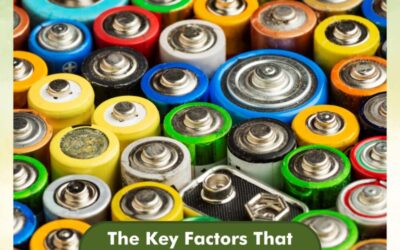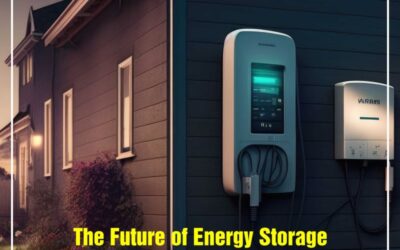
Let’s explore how Indi Energy’s sodium-ion batteries stand up against lithium-ion batteries.
In the world of energy storage, a new contender has emerged to challenge the undisputed reign of lithium-ion batteries: Indi Energy’s sodium-ion batteries. Our revolutionary sodium-ion battery technology is gaining momentum and is set to transform the energy storage sector. As this innovative technology enters the mainstream, the general public must become aware of its potential and the benefits it offers. In this blog post, we will explore the comparison between lithium-ion and sodium-ion batteries to gain a better understanding of their respective advantages and drawbacks.
While sodium-ion technology dates back to the 1980s, it was overshadowed by lithium-ion batteries due to their higher energy density, making them ideal for energy storage applications. However, in recent years, the limited availability and high cost of mining lithium have shifted the spotlight to sodium-ion batteries. With the universal need for batteries that provide value for money, the need for an alternative to lithium-ion has become evident. Sodium-ion batteries might just be the answer we have been searching for, addressing issues such as availability, cost, safety, and recyclability.
Let’s delve into a comprehensive comparison of the two battery technologies to un
Sodium ion batteries:
- Abundant reserve: Sodium is widely available and can be sourced from various natural sources, including soda ash and seawater.
- Environmentally friendly sourcing: Unlike lithium mining, which has adverse environmental impacts, Indi Energy’s sodium-ion batteries utilize hard carbon, an anode from crop residue, and agricultural waste.
- Cost-effective: Sodium, being abundant and readily available, is significantly cheaper compared to lithium. The cost of sodium-ion batteries is considerably lower, from extraction and purification to battery production
- Stable at wide-range temperatures: Sodium-ion batteries exhibit good performance across a wide temperature range, making them suitable for various applications.
- Rapid charge/discharge: These batteries offer fast charging and discharging capabilities, ensuring quick and efficient energy storage and release.
- Longer lifespan: Sodium ion batteries boast a greater lifespan compared to lithium-ion batteries, providing extended usage and durability.
- Non-flammable and easy to recycle: Sodium-ion batteries do not catch fire and pose no transportation risks. Additionally, they are easier to recycle, contributing to a more sustainable approach to energy storage.
Lithium-ion Batteries:
- Scarce reserve: Lithium reserves are limited, making the availability of lithium-ion batteries uncertain in the long run.
- Environmentally harmful sourcing: Lithium mining has detrimental effects on the environment, making it less sustainable compared to sodium sourcing
- Higher cost: Due to their limited availability and increased mining costs, lithium-ion batteries are more expensive than their sodium-ion counterparts.
- Poor performance at low temperatures: Lithium-ion batteries exhibit reduced performance in colder temperatures, limiting their application in certain environments.
- Shorter lifespan: Lithium-ion batteries have a shorter lifespan compared to sodium-ion batteries, requiring more frequent replacements.
- Flammable and difficult to recycle: Lithium-ion batteries are flammable and can pose safety risks. Additionally, their recycling process is more complex and challenging.
An Atma Nirbhar Bharat courtesy of Indi Energy: Empowering Energy Independence in India:
In 2014, India’s Prime Minister, Narendra Modi, emphasized the importance of self-reliance, aiming to reduce dependency on imports and establish a global market presence.
Taking this vision forward, a team at IIT-Roorkee formed Indi Energy in 2019 to make India self-sustaining in the energy storage sector. Today, Indi Energy stands as India’s first indigenous sodium-ion battery fabricator, contributing to India’s energy independence.

Our sodium-ion batteries possess several properties, making them a preferable alternative to lithium-ion batteries. These can be summarized using the acronym SAAS: sustainability, availability, affordability, and safety.
- Sustainability: Sodium sourcing is environmentally friendly, utilizing crop residue and agricultural waste for hard carbon anodes, reducing the environmental impact.
- Availability: Sodium is a common element available worldwide, providing a reliable and abundant source for battery production.
- Affordable: Sodium’s abundance translates into lower costs for extraction, purification, and overall battery production, making sodium-ion batteries more cost-efficient.
- Safe: Sodium-ion batteries are non-flammable, eliminating the risk of fire and ensuring safe transportation. Furthermore, they are easier to recycle, promoting a sustainable approach to energy storage.
The above comparison between lithium-ion and sodium-ion batteries has made it increasingly clear that sodium-ion technology holds immense promise as a sustainable and cost-effective alternative. While there are still challenges to overcome, such as lower energy density and larger battery sizes, breakthroughs are already underway. Indi Energy’s sodium-ion battery
pouch cells represent a clean and green revelation that is being prepared for mass production. With their immense potential, sodium-ion batteries are poised to usher in a new era for energy storage technologies.
To learn more about us and our contribution to sustainable energy storage solutions, get in touch with us today. Join the journey towards energy independence with Indi Energy: Empowering Energy Independence.






